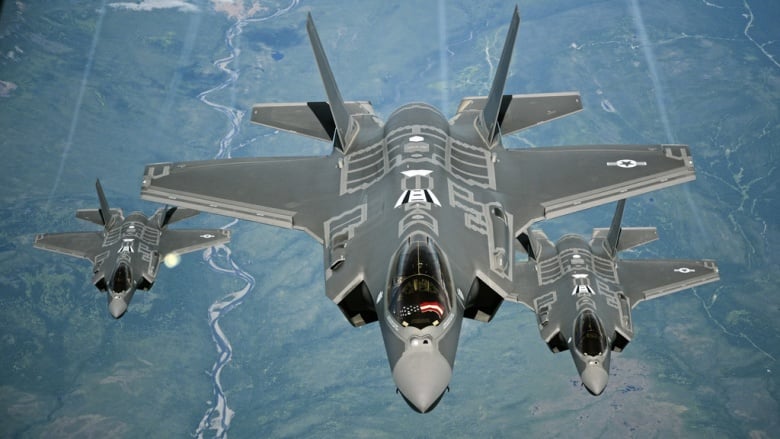
The plane that is destined to replace the various types of aircraft flown by NATO forces and its allies might have some problems. The F-35 vertical take-off capable stealth fighter/bomber has been targeted by U.S. politicians for various reasons.
The F-35 will be distributed in various versions to different countries, and in return many of these participating countries will have a role in the global production of the F-35—similar to the multi-national production of the Tornado fighter/bomber or Airbus aircraft in Europe. With the suggestion of using the F-18E or an updated version by President Trump and being put into full effect by the Canadian government, the F-35 program will become a lot messier, and therefore more costly to all countries involved.
Trump suggested to Boeing that an upgraded version of the F-18E should be cost out comparable to the F-35. Many see this as a bargaining tactic, by pressuring Lockheed to lower the price on the future F-35. While a high-tech upgrade with stealth capabilities is possible for the F-18E and even the F-15, it would still lack the capabilities of the next generation F-35 that most likely would need to be invented even with a stealthy F-18E or F-15. While President Trump wishes to make it clear that the U.S. might walk away from the F-35 despite the chaos it would cause, it is most likely a bargaining tactic than an actual plan by the new Administration.
It is possible however to have the new F-18E or F-15, as stealthy prototypes have been produced. But in the end, the technologies that will prevent U.S. pilots from being shot down by S-400 and S-500 missiles is based in future developments of the F-35 platform, leading possibly to a revised F-22 with lower costs and higher production numbers. If lowering the costs of the F-35 works, and this cost reduction is transferred to lowering the costs of future projects like a revised F-35 or F-22, it would be worth the pressure on Lockheed for the U.S. government.
The Canadian proposal to replace the F-35 was a political talking point for years before the current government came into power. The Trudeau eventually decided—without much time or consultation, or even a competition—to buy several F-18Es to supplement its forces while it still pays into the F-35 program. Many in Canada believe that the supplemental planes may be a stepping stone to replace the F-35 altogether.
But with fees still being paid into the F-35 program and no consideration for other candidates like the Dassault Rafale or Saab Gripen, it seems as if there is no constructive arguments for keeping both planes in Canada’s inventory. Several retired generals have also voiced their concerns. This call has fallen on deaf ears despite the fact that F-18Es less advanced than the F-35 and that Canada is opting for newer planes instead of de-commissioned ones that could be updated to save costs. In the end, Boeing has won another round against Dassault and Saab, despite the loss of Canadian jobs and possible loss of future pilots.
All in all, pilots and the people they are protecting are paramount, not the reputation of politicians making political decisions without regard to technical information or the lives of the men and women in uniform.